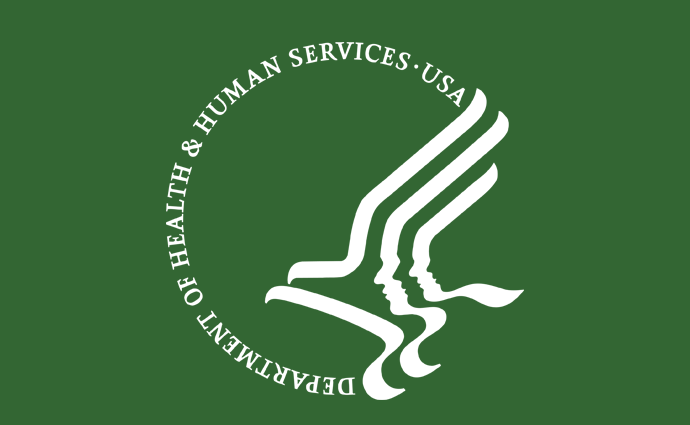HHS Overhauls Key Healthcare Fraud Laws to Advance Value-Based Care
The two final rules will provide new, permanent exceptions in the Stark Law and Anti-Kickback Statute for providers in value-based care arrangements.

Source: US Department of Health & Human Services
- After years of debate, HHS agencies have made changes to two major healthcare fraud, waste, and abuse laws that providers have said get in the way of value-based care progress.
Late last week, CMS and OIG released final rules that will provide new exceptions to the Physician Self-Referral Law, otherwise known as the Stark Law, and the Anti-Kickback Statute for providers participating in value-based care models.
Specifically, the final rule from CMS created new, permanent exceptions for value-based providers under the Stark Law. Meanwhile, OIG’s final rule modified four existing Anti-Kickback Statute safe harbors and codifies a new exception under the Beneficiary Inducements Civil Monetary Penalty (CMP) law provision.
Together, HHS intends for the new regulations to support provider efforts to implement value-based care models without the fear of violating healthcare fraud, waste, and abuse laws.
“[W]e’ve completed historic reforms to regulations that have stood in the way of creativity and innovation by American healthcare providers for far too long,” HHS Secretary Alex Azar said in an announcement. “These new regulatory reforms will mean better care, including innovative arrangements with digital technology that may help patients receive care during the COVID-19 pandemic.”
READ MORE: Medical Groups Worry About Risk in Anti-Kickback, Stark Law Reform
The rules are both part of HHS’ Regulatory Spring to Coordinated Care, which is an initiative that examines federal regulations that have potentially stymied provider efforts that would have otherwise advanced the transition to value-based care and improved care coordination.
Additionally, the CMS final rule “clarifies and modifies existing policies to ease unnecessary regulatory burden on physicians and other healthcare providers while reinforcing the physician self-referral…goal of protecting patients from unnecessary services and being steered to less convenient, lower quality, or more expensive services because of a physician’s financial self-interest,” according to HHS.
The CMS final rule, for example, also implements new exceptions for “non-abusive, beneficial” arrangements for providers in fee-for-service payment models. An arrangement that would qualify for protection from the Stark Law includes a donation of cybersecurity technology that safeguards the integrity of the healthcare ecosystem, CMS explained.
The agency also provided new guidance and clarifications in its new rule on how to comply with the Stark Law, including how to determine if compensation exchanged between providers is fair market value and other technical compliance requirements that have burdened providers.
OIG’s final rule also makes more information available on the role non-traditional healthcare providers have in value-based care arrangements. For instance, the rule clarifies how medical device manufacturers and durable medical equipment companies can take part in protected care coordination arrangements that include digital health technology.
READ MORE: Sutter Health Pays $46M to Settle Stark Law Violation Claims
The rule from OIG also lowers the level of downside financial risk parties must assume to qualify under the new safe harbor for risk-based models.
“These reforms under the Stark Law and Anti-Kickback Statutes are historic reforms and come as part of the regulatory sprint to coordinated care that I led over the past few years,” said HHS Deputy Secretary Eric Hargan. “Too often, ‘sorry, Stark’ or ‘can’t do it, AKS’ have been watchwords in American healthcare. Under President Trump, we’re finally breaking down barriers to patient-centered, value-based healthcare innovation. As Chief Regulatory Officer of HHS, it has been an honor for me to work with the talented staff at OIG and CMS to create platforms to allow innovative uses of a whole array of new ideas, such as value-based enterprises and patient engagement tools.”
Leading healthcare industry groups have commended HHS and its agencies for tackling the complexities of the healthcare fraud laws, which have vexed providers for years.
“The AHA greatly appreciates the leadership of Deputy Secretary Hargan in finalizing this rule and listening to the concerns of hospitals and health systems. The AHA has long called for the ability to coordinate care among providers to provide comprehensive patient care,” Tom Nickels, executive vice president of the American Hospital Association (AHA), said in a statement on the group’s website.
“Outdated regulations created unnecessary roadblocks to the kind of collaboration and coordination that enables caregivers to meet all of their patients’ health care needs, whether in the hospital, the doctor’s office or their own homes,” Nickels stated.
READ MORE: How Providers Can Detect, Prevent Healthcare Fraud and Abuse
But for others, the overhaul of the regulations is just a step toward a more comphrensive solution.
“We recognize HHS had the difficult task of implementing this overly complicated law and has limited ability to act within its statutory authority,” Anders Gilberg, senior vice president of government affairs at the Medical Group Management Association (MGMA) said in an emailed statement. “Efforts to improve the Stark Law’s regulatory framework will be undercut by the law’s strict liability regime, disproportionate penalty provisions, and vexing construct. We continue to believe there is a significant need for Congressional action.”
Healthcare improvement company Premier Inc. has also called on Congress to pass additional reforms, including changing the strict liability nature of the Stark Law.
“Today, physicians can be penalized for lack of compliance even when the intention of their actions were to provide care in the best interest of the patient,” Blair Childs, senior vice president of public affairs, stated.
